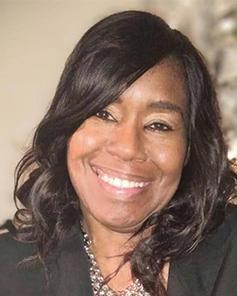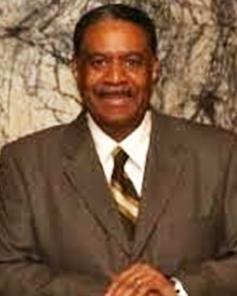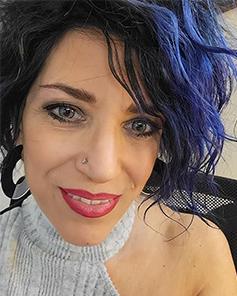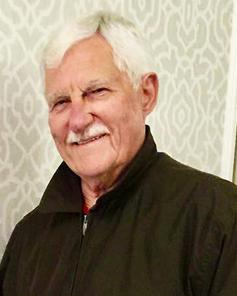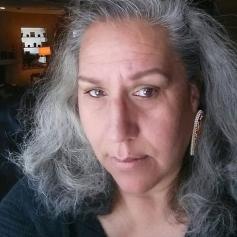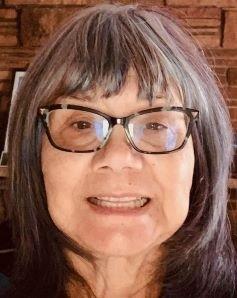The Orchestrating Multifaceted Engineering for Growing Artificial Joints (OMEGA) project’s Engagement and Accessibility team at Case Western Reserve University has appointed an Engagement Advisory Committee (EAC) to help guide the development and implementation of the community-based activities. The EAC is composed of community leaders, influencers, and residents who are committed to addressing barriers contributing to health disparities and improving accessibility for better health outcomes. The members possess a wide array of skills and expertise related to osteoarthritis, community engagement and advocacy.
EAC members are committed to:
- Serve as a health engagement champion focused on addressing inequities in all populations
- Help researchers carry out initiatives to improve accessibility through community engagement
- Amplify the lived experiences of marginalized populations to ensure all voices are heard
Engagement Advisory Committee Members
Mildred (Millie) Agnew
Nurse
Millie has been a nurse since 1995 and has a passion for educating others on health and wellness. She has struggled with osteoarthritis for many years. She was diagnosed with juvenile rheumatoid arthritis in her knees at 11 years old. By age 33, her rheumatoid arthritis progressed to osteoarthritis, which required total bilateral knee replacements. After many years of being in agony, she underwent a total right knee replacement at age 51 and had a total left knee replacement at age 56.
Her experience with osteoarthritis (OA) can be highly valuable for advocacy efforts and gives her a deep understanding of the challenges and needs faced by individuals with osteoarthritis. Her personal story continues to be a powerful tool in raising awareness about osteoarthritis. She believes that sharing her experiences can help educate others, reduce stigma, and highlight the importance of research and support. Millie hopes that her experiences can help build and support communities of individuals with similar conditions. By sharing her journey, she aims to foster connections, provide support, and collaborate on collective efforts to address common challenges with OA.
Dr. Tony Minor
Manager, Faith Communities Outreach Office of Strategic Philanthropy and Community Engagement
Tony manages the faith-based outreach at the MetroHealth Medical System. He develops, cultivates, and manages a community-wide network of faith-based organizations to collaboratively improve the health of community members. He finds fulfillment in developing and evaluating projects that address unmet community needs and in equipping community members to act as leaders and change agents to improve their neighborhoods and their own health and well-being. Tony has a BA degree in English from Morehouse College and a Master’s of Divinity from the Interdenominational Theological Center and a Doctor of Ministry Degree from the United Theological Seminary.
Therese Fasano
Therese believes that research in osteoarthritis and total knee replacement (TKR) surgery is very important. She was diagnosed in 2005 with osteoarthritis in both knees. She had arthroscopic surgery on left knee in 2006 and will need a TKR for left knee in the near future. She had arthroscopic surgery on right knee in 2017, followed by a complete joint replacement.
Paul Stephan
Paul is a Case Western Reserve University (CWRU) alumnus and currently serves on the Case Alumni Association. He previously taught classes in information systems, systems analysis, and computer science at CWRU. In the past he worked as the administrator for the Cleveland Regional Perinatal Network (CRPN) and implemented a uniform medical record to improve maternal and infant health outcomes.
Jamie Babyak
Jamie’s lifelong passion for sports has been shaped by her commitment to competition, teamwork, and goal-setting—values she strives to instill in her three daughters. Due to multiple ACL surgeries, she has developed advanced osteoarthritis and faces a TKR within the next decade. Her involvement in the OMEGA project is driven by her desire to explore innovative treatments for osteoarthritis and potentially delay or avoid joint replacement surgery.
Marlys Rambeau-General
Marlys is a lifelong resident of Cleveland and an enrolled member of the Cheyenne River Sioux Tribe, headquartered in Eagle Butte, South Dakota. She has been involved with the Native American community since she was 11 years old and started working directly with them in 1979. She has worked with several Native organizations throughout the state of Ohio in many different capacities. As a member of an underserved, underrepresented community, she is hoping that her input will be helpful to future generations.
R. Cruz Begay
Cruz enjoys being outside with her chickens, goats and Three Sisters Bean Farm near Flagstaff, Arizona. She is a member of the Tohono O’odham Nation and is trying to grow the bawĭ, a traditional bean that sustained the O’odham before grocery stores existed. In her former life she obtained Masters and Doctoral degrees in public health and worked in communities on the Navajo Nation with Indian Health Service and with a community health center. Eventually she was recruited to apply for a fellowship at Northern Arizona University and in ten years became an associate professor of health sciences. However, she decided that sitting in front of a computer much of her time was not how she wanted to spend the rest of her life and left Academia to pursue more outdoor interests. Now she deals with osteoarthritis and is acutely aware of all the other Indigenous people who suffer with it. Two years ago she was told she needed a knee replacement, but she is loath to do it. She says the possibility of a more natural knee replacement seems like a sci-fi dream come true.


